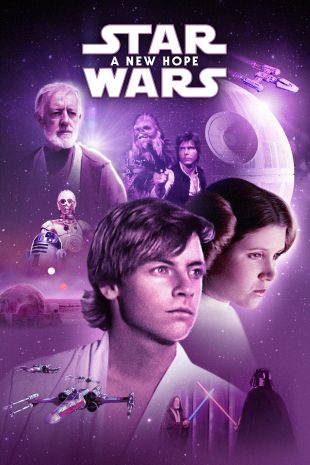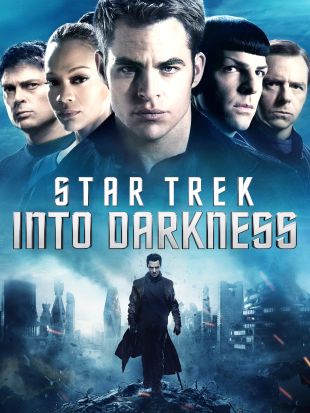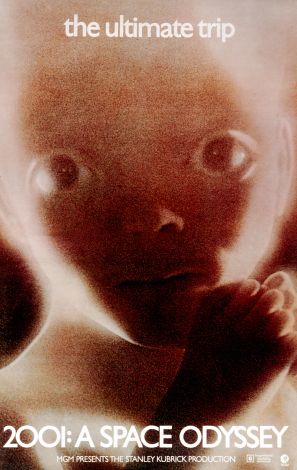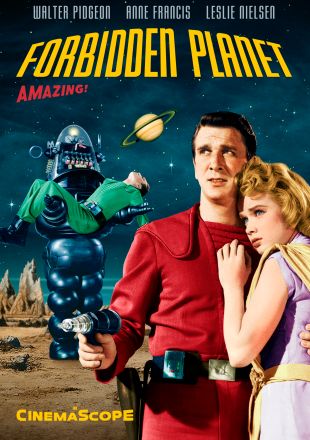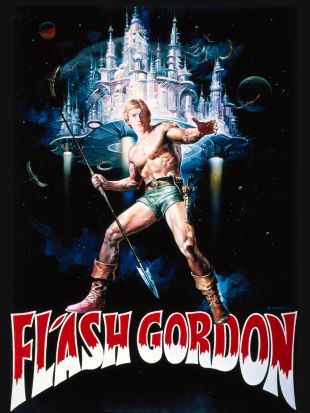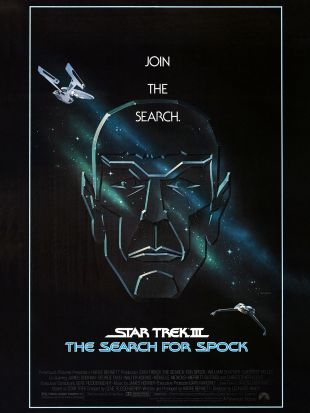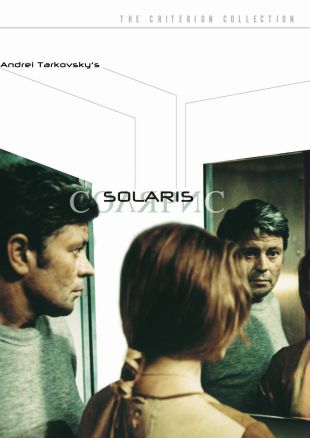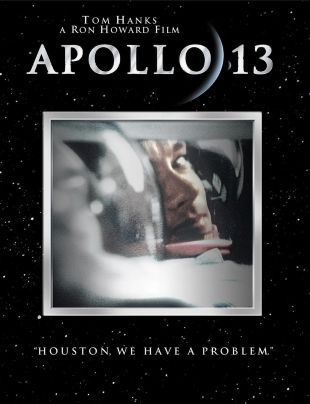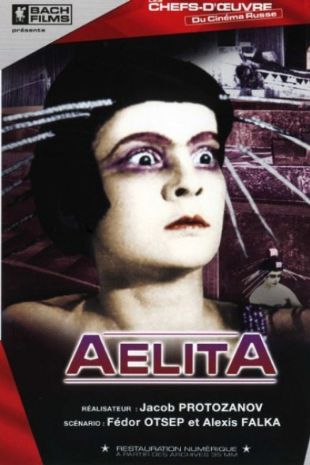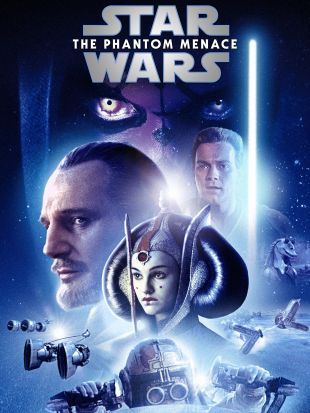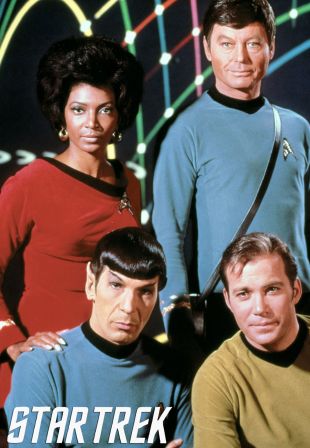
Star Trek (1966)
Genres - Fantasy, Drama, Science Fiction |
Sub-Genres - Space Adventure |
Run Time - 60 min. |
Countries - Brazil, Germany, United States |
Share on
Synopsis by Hal Erickson
Although it undoubtedly goes without saying at this late date, the original Star Trek is the most popular and influential science fiction series ever seen on American network televsion--and as far as many people are concerned, it remains absolutely the best TV series of any kind. The weekly, hour-long Star Trek was conceived as "Wagon Train in outer space" by its creator, Gene Roddenberry, who had long labored in the TV-western mills before his pet project made its NBC debut on September 8, 1966. Describing space as "the final frontier" in the opening narration, Captain James T. Kirk (William Shatner), commander of the starship U.S.S. Enterprise, informed the viewer that his vessel's five-year mission was to "seek out new life forms and new civilizations", and "to boldly go where no man has gone before." The series was set in the 23rd century, a time in which most of the various intergalactic civilizations (with the notable exception of the warlike Klingons!) had forged a lasting peace and formed the United Federation of Planets, for whom the Enterprise was the flagship. While the heroic, self-sacrificing Kirk was the leading character and primary plot motivator, the series' most famous character was the Enterprise's pointy-eared first officer/science officer Mr. Spock (Leonard Nimoy). Born on the planet Vulcan and the product of a Vulcanian father and human mother, Mr. Spock was cool, unflappable, unemotional, meticulously logical--and to thousands upon thousands of female Star Trek enthusiasts, irresistable. Other members of the multiethnic crew included Dr. Leonard "Bones" McCoy (DeForest Kelley), the ship's short-tempered chief medical officer ("Dammit, Jim, I'm a doctor, not a mind-reader!"); chief engineer Montgomery "Scotty" Scott (James Doohan); Lt. Uhura (Nichelle Nichols), the African American communications officer; Lt. Sulu (George Takei), the Asian helmsman; nurse Christine Chapel (played by ajel Barrett, later Mrs. Gene Roddenberry); and, beginning in the second season, Russian-born ensign Pavel Chekov (Walter Koenig). Another principal character, Yeoman Janice Rand (Grace Lee Whitney), appeared sporadically during the first two seasons. Unlike so many other sci-fi/fantasy programs, Star Trek favored strong characterizations and solid story values over gadgetry and monsters: indeed, it was originally touted as "TV's first adult science fiction series." As such, the program attracted the best writers of the genre, among them Richard Matheson, Theodore Sturgeon, Robert Bloch, David Gerrold and Harlan Ellison, and the series' prolific story consultant, D.C. Fontana). Even so, there were still plenty of special photographic effects, which may seem a bit primitve when seen today but were sufficiently impressive to earn an Emmy award. The most memorable special effect was utilized whenever Kirk and his officers were "disintegrated" in order to be transported from the deck of the Enterprise to the surface of the planet of the week, and back again--inspiring the series' most famous catchphrase, "Beam me up, Scotty". While NBC has come in for its share of criticism for dictating budget cuts and production-staff changes that gradually eroded the series' quality (especially during its much-maligned third season), the network deserves credit for keeping Star Trek alive for three seasons and 79 episodes, despite mediocre ratings. It was only after its cancellation on September 2, 1969 and its move into off-network syndication that Star Trek began steadily building a huge audience above and beyond its core fan base of "Trekkers" (or "Trekkies", depending upon the fan's age and extent of enthusiasm). By the time the first Star Trek convention was held in 1972, the series' place in the Valhalla of TV classics was assured. By popular demand, an animated version of the series, utilizing several of the original stars' voices, premiered as a Saturday-morning entry in 1973; and six years later the first of several expensive, high-grossing Star Trek theatrical features was released. The series' popular spinoff sequels began proliferating on television 1987 with Star Trek: The Next Generation, followed by Star Trek: Deep Space Nine in 1992 and Star Trek: Voyager in 1995; there was also a moderately successful "prequel", Enterprise, in 2001. Finally, the original Star Trek was repackaged for syndication in the fall of 2006, with new CGI-enhanced special effects and a lavishly rewritten and reorchestrated musical score (though happily, the classic theme music by Alexander Courage was retained).
Characteristics
Moods
Themes
Keywords
space-exploration, space-travel, spacecraft
Attributes
High Historical Importance
